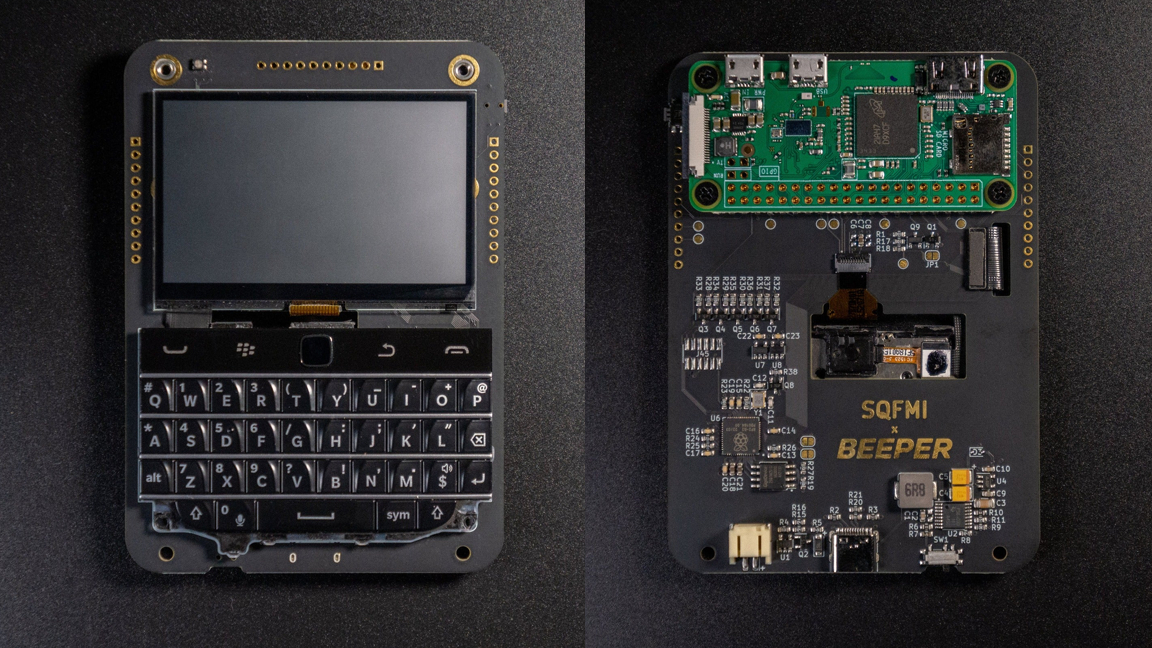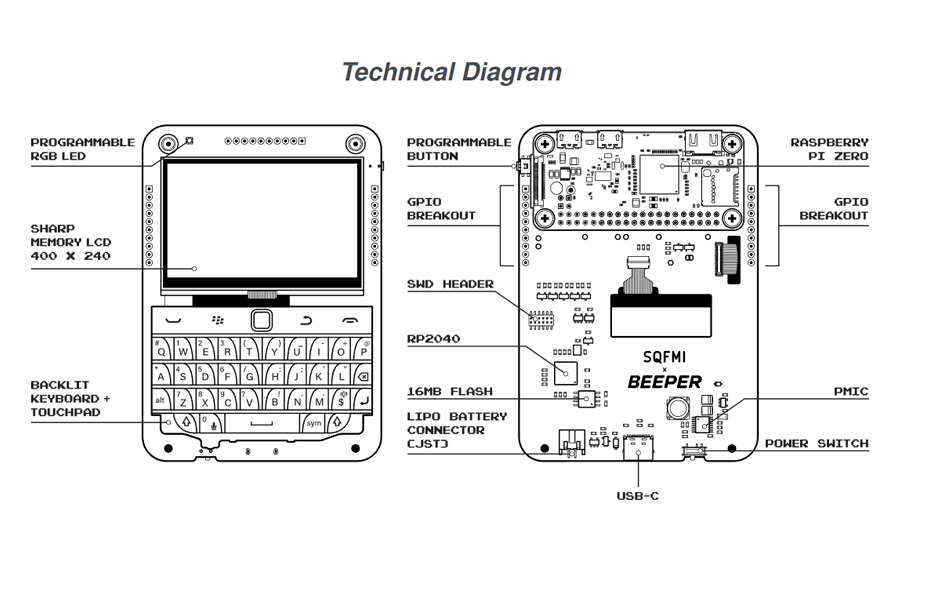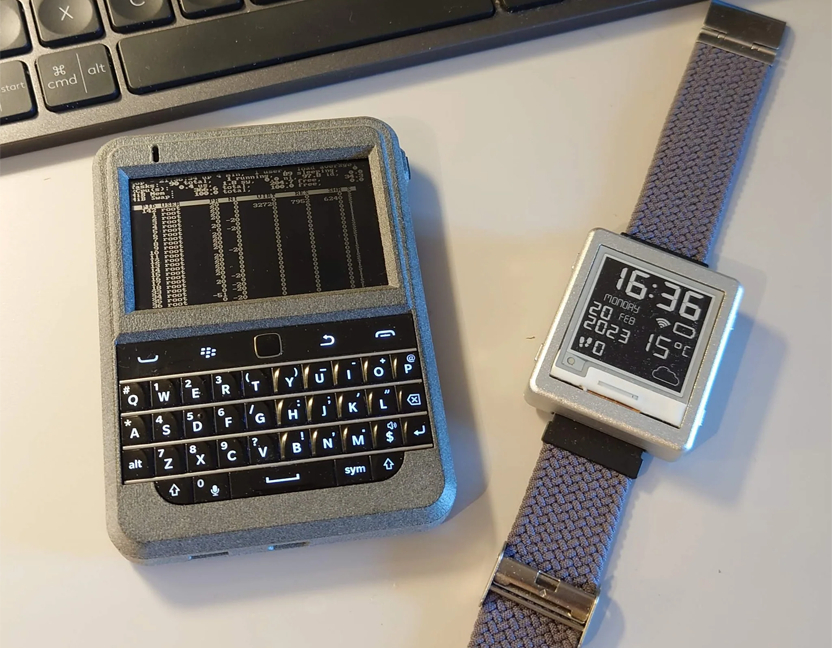
Many of us remember the days of the Blackberry, and some might be eager to revisit the feeling of that classic PDA. Today we’ve got a Raspberry Pi project to share that does just that with Eric Migicovsky’s Beepberry creation. The Beepberry is a portable, pocket-sized computer for hackers and communicating on Beeper. According to Migicovsky, Beepberry is part of a partnership between Beeper and SQFMI. The Beepberry is officially available for preorder for $79.
Although it has an onboard RP2040, a separate SBC is necessary to use the Beepberry. It’s compatible with the Raspberry Pi Zero W and other SBCs with the same form factor, including the MQ-Pro and Radxa Zero. Be sure to choose a unit without a pre-soldered header, as it needs to be low profile to fit onto the PCB.
The PCB supports a small 2.7-inch 400 x 240px e-Ink display. This uses low power and will retain the last image projected on the screen until it’s powered on again. For user input, it features a tactile keyboard and a touchpad. The keyboard is backlit, making it easier to see and use in low-light environments.


Spec-wise, users have quite a bit to take advantage of. The Beepberry PCB also includes a programmable button, a programmable LED, 16MB of onboard flash, and a power switch. A JST connector is available for connecting a 2000 mAh LiPo battery. It also features a small GPIO breakout to attach additional accessories to the unit.
Software-wise, the Beepberry is designed to run the 32-bit version of Raspberry Pi OS Lite. There’s plenty of documentation available on the Beepberry website, which also includes a section dedicated to the software. You can read more about programming the Beepberry in this documentation.
If you want to read more about this pocket-sized Raspberry Pi project or maybe even snag one for yourself, check out the official Beepberry website and visit the online shop. The first units are expected to ship in August without a Pi Zero W, while units with a Pi Zero W will be released in September.







